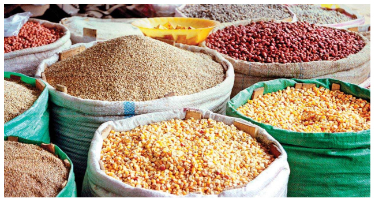In an effort to bolster food security in Nigeria, the Federal Executive Council (FEC) has approved a significant investment in agricultural machinery under the National Agricultural Mechanization Programme (NAMP). The initiative includes the procurement of 2,000 tractors, 4,000 disc ploughs, 1,200 tractor trailers, and various other essential equipment.
This development was announced by Bayo Onanuga, Special Adviser on Information and Strategy to President Bola Tinubu, in a statement on X (formerly Twitter). The announcement followed a recent FEC meeting held in Abuja, where the council discussed and approved these measures aimed at transforming the agricultural sector.
The equipment will be supplied by DMCC, a firm renowned for similar projects in countries such as Zimbabwe, Kenya, South Africa, and Togo. Onanuga elaborated on the specifics of the procurement, stating, “The items to be supplied are for the National Agricultural Mechanization Programme (NAMP) to strengthen national food security. DMCC, which has done a similar job in Zimbabwe, Kenya, South Africa, and Togo, will supply all the equipment and will also set up a plant to assemble the machinery in the second stage of the contract.”
In addition to the procurement of machinery, the federal government is taking steps to stabilize the agricultural market and support farmers. One of the measures includes engaging with stakeholders to establish a Guaranteed Minimum Price (GMP) for commodities. This initiative aims to protect farmers from volatile market prices and ensure they receive fair compensation for their produce.
 The government also plans to ramp up agricultural production, particularly among smallholder farmers, during the 2024/2025 farming season. This will involve promoting the production of fortified food commodities, which are essential for improving nutrition and health outcomes among the population.
The government also plans to ramp up agricultural production, particularly among smallholder farmers, during the 2024/2025 farming season. This will involve promoting the production of fortified food commodities, which are essential for improving nutrition and health outcomes among the population.
This initiative comes at a critical time as Nigeria faces a severe food security crisis. The country is grappling with food inflation, which has soared to 40.5 percent, making it increasingly difficult for households to afford basic necessities. The prices of staple foods, especially grains, have more than doubled over the past year, exacerbating the struggle for many families.
In response to these challenges, the federal government recently announced additional support measures. This includes distributing ₦50,000 to 100,000 households across Nigeria’s 36 states for three months, along with purchasing food items worth ₦155 billion to be distributed nationwide. These efforts are aimed at providing immediate relief to families while the longer-term agricultural initiatives take effect.
The FEC’s approval of the NAMP and the subsequent measures underscore the government’s commitment to addressing the food security crisis and revitalizing the agricultural sector. By investing in mechanization and supporting farmers, Nigeria aims to enhance food production, stabilize prices, and ensure that all citizens have access to affordable and nutritious food.
This multifaceted approach is expected to not only mitigate the current food crisis but also lay the groundwork for a more resilient and sustainable agricultural system in the future. As the country moves forward with these initiatives, close monitoring and continued support for farmers will be crucial to achieving these goals and securing Nigeria’s food future.




